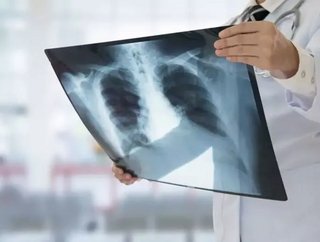Zebra Medical Vision aims to cater to a surging health imaging market

Israeli artificial intelligence and deep learning imaging analytics company Zebra Medical Vision is set to provide essential support the healthcare industry by undertaking current and future algorithms to healthcare providers for $1 per scan. Its new suite, AI1 will see the development of high quality, cost-effective healthcare on a global scale.
Over the last 20 years, demand for imaging services have surged, placing significant strains on medical professionals to increasingly provide the required services. However, with such high volumes there is always an increase in compromising of patient care, leading companies to increasingly look implementing new technologies to support this growing market.
"Clinicians today are tremendously pressured and overworked," says Elad Benjamin, CEO of Zebra Medical Vision. "I believe tools like Zebra can help compliment what a radiologist does by providing a second pair of eyes that looks at all the potential maladies of a patient without missing anything."
Automated Imaging Analytics tools such as Zebra’s Deep Learning engine will undertake the clinical and computational horsepower needed to allow radiologists to make the next leap in patient care and enable the continuation of exceptional patient services.
“With this new model, we hope to facilitate adoption globally, especially in countries where access to radiology is difficult,” adds Benjamin.
Related stories
- New algorithm created to support those with suicidal thoughts.
- Amazon’s pharma ambitions ramp up, causing pharmacy distribution stocks to plunge
- Ada Health raises $47mn in new funding round
“We are making a commitment to provide our current tools, and all future ones, for a flat $1 USD per scan. By doing so we believe that a true difference can be made in the provision of radiology services worldwide.”
Zebra-med capabilities include automatic detection of liver, lung, cardiovascular and bone disease, and new capabilities are constantly being released – covering breast cancer, lung cancer, brain trauma, hypertension, and other clinical areas. Its findings are integrated into PACS and RIS systems, allowing radiologists to seamlessly include them in their reading and reporting workflow.
This automated assistance contributes to more comprehensive, quantitative and consistent reporting, improving the output of radiologists and contributing to overall improved patient care. The company’s analytics engine is deployed at over 50 hospitals globally, and has analysed more than a million patient scans to date.
Currently partnered with over 50 hospitals globally, the company has undertaken a number of studies in the UK and is hoping to partner with the National Health Service. Additionally, it aims to support poor nations, and provide universal support to all.






